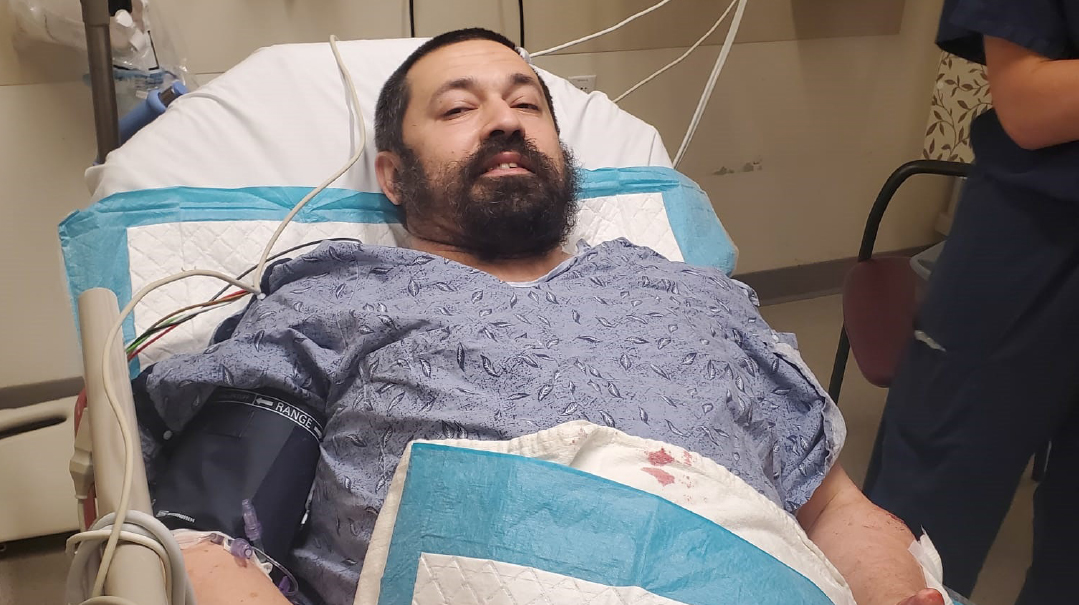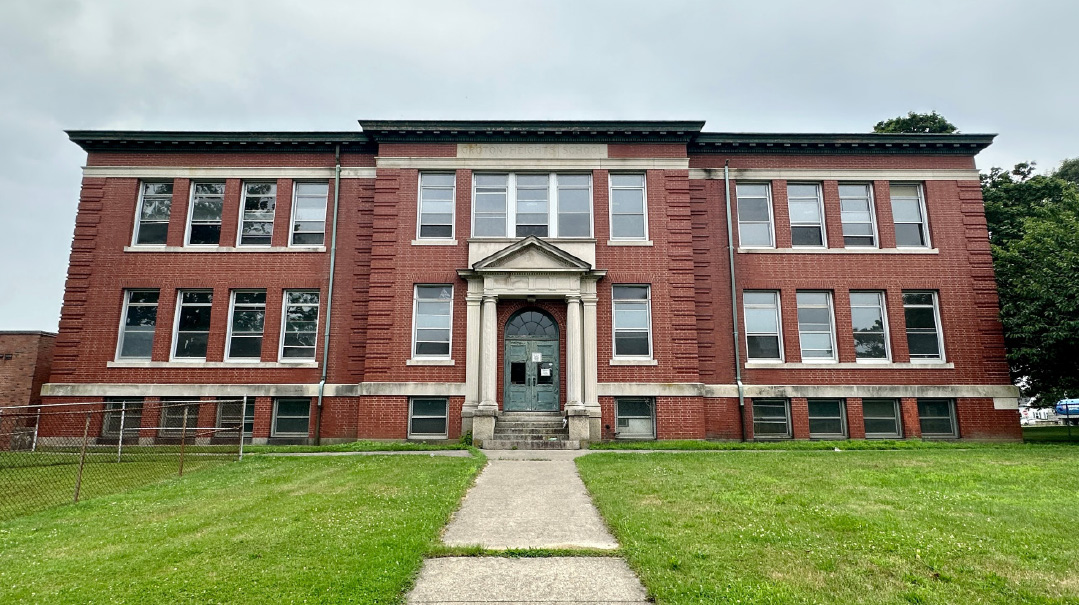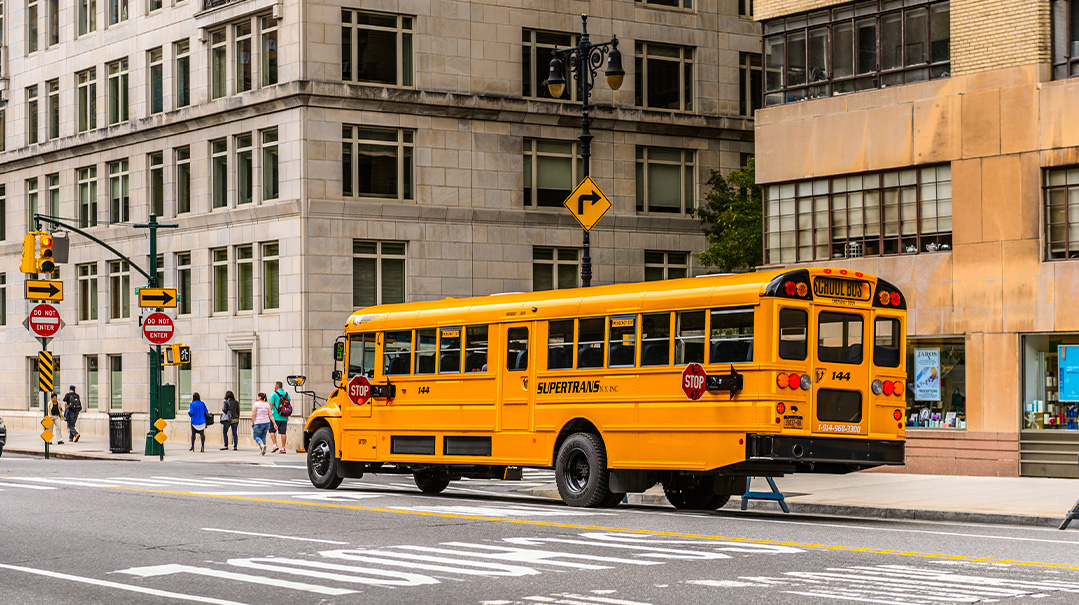Boston Chabad Rabbi: “I’m a Walking Miracle”

Boston, along with nearly every other major US city, has seen a rise in anti-Semitism since the Gaza conflict last month

When Shlomo Noginski was a lad of ten, he was with his mother at Moscow’s Red Square, facing the spires of the Kremlin, when a man approached and began yelling anti-Semitic slurs. He ended with the chilling threat that he would return and kill their entire family.
The family fled the scene, and soon decided that Russia was not their place. It was the early 1990s, just as the Soviet Union was collapsing, and the family moved to Eretz Yisrael, joining the one million others who made aliyah during that period. Shlomo’s mother also insisted that he train in martial arts so he could protect himself in any future confrontations. Eventually, the Russian Jewish boy became a black belt in judo.
That skill likely saved countless lives three decades later. Last Thursday, Noginski was standing in front of the Boston Chabad day camp he helps run when a man approached him aggressively and began trying to stab him.
“What saved me was HaKadosh Baruch Hu — I don’t have to explain that,” Rabbi Noginski, 41, told Mishpacha. “This guy tried stabbing me dozens of times, if not more. The Hashgachah pratis was that it was me there, and I know judo. If it had been anyone else, the outcome would have been terrible.”
He affirmed that the Red Square attacker Hashem had sent so many years earlier had set in motion the events that would safeguard the Boston day camp children 30 years in the future.
Noginski, a married father of 12, lived in Israel until two years ago, when he became the Chabad shaliach to Boston’s Russian-speaking community. He works for Rabbi Dan Rodkin, organizing shiurim for a dozen adults and arranging Torah classes and summer camps for children. In all his time, he never encountered an anti-Semitic incident.
Rabbi Noginski was talking on the phone at about 1 p.m. in front of the Camp Shaloh day camp in Boston’s Brighton neighborhood when Khaled Awad, a 24-year-old with a criminal record in Florida, advanced toward him. He pulled a gun and demanded that the rabbi take him to his car.
Rabbi Noginski took out the key and said, “Here’s the key.”
Awad responded, “No, you open the car,” before trying to force him inside.
Rabbi Noginski started to flee. Figuring the gunman to be a simple carjacker, he began recording him with his phone.
Instead, Awad abandoned the car and began chasing down his victim. Desperate to end the deadly assault, Rabbi Noginski ran out to the street but people grew frightened and ran away. The maneuver apparently alarmed Awad. He put the gun away in his pocket, removed a blade and began trying to stab him. He was yelling Arabic phrases that Rabbi Noginski did not understand, but he is certain that this was an anti-Semitic assault.
Aware that he was the only man standing between the crazed attacker and over 100 children and staff members in the building behind him, Rabbi Noginski deployed his best judo skills to ward him off. But the knifeman seemed unstoppable — one minute, two minutes passed, and he continued seeking ways to stab the Jew — for as much ten minutes, Rabbi Noginski estimates, he kept at it.
“He did not leave me alone for a second,” he recalled. “He kept on trying to stab here, stab there, if he saw he couldn’t stab me on my back, he tried on my hand, he tried on my stomach. He just didn’t leave me alone. He didn’t stop for a second.”
During that entire time, Rabbi Noginski said he kept a story of a previous Lubavitcher Rebbe, Rav Yosef Yitzchak Schneersohn, at the forefront of his mind. The Rebbe was called in by the Soviets’ feared NKVD over his activities to spread Yiddishkeit. Seeing he was getting nowhere, the officer withdrew a gun and said, “This toy has made others talk.”
“This toy,” the Rebbe responded, pointing to his chest, “has power over someone with many gods and one world. I have one G-d and two worlds, and I’m not afraid of your toy.”
“This story that I grew up on ever since I arrived in Eretz Yisrael from Russia,” Rabbi Noginski said, “was what gave me the strength and bitachon to get through the ordeal. There are some people who know everything, but when the moment of truth comes, they forget it all. This story immediately came to me when the stabbing began.”
Rabbi Noginski, who was released from the hospital just before Shabbos, marvels that of the over 100 stab attempts, only eight of them found their marks.
“Whoever wants to witness a miracle should look at me,” he said, smiling broadly. “I have stab wounds in the stomach, I have stab wounds on my side — if any of them had been a tiny bit deeper...” His voice trailed off as he contemplated the alternative. “I say it was ‘just’ eight stabs, but these eight were in places that could have killed me. All he needed was one stab. A million percent he wanted to kill me.”
Staff members placed the facility in lockdown as soon as the stabbing began, and herded the children away from the window. But some of them watched it happen, one parent said.
Rabbi Moshe Bleich, the Chabad rabbi at nearby Wellesley, said he has two children attending the day camp, ages four and seven. “They’re speaking about this nonstop,” he said. “We have a lot of guests on Shabbos, and they’re telling anybody who will listen about the ‘robber who poked the rabbi.’ ”
Chai Lifeline, the trauma response agency, held a Zoom call with day camp parents on Friday to advise how to calm the children.
Awad, an Egyptian citizen who overstayed a tourist visa, was arrested and charged with assault and battery with a deadly weapon, but not yet with a hate crime, pending an investigation. Police said in court documents that he drew a gun when they arrived to detain him, and he kicked an officer in the stomach.
Awad studied chemical engineering until recently at the University of Southern Florida. Students recall him as violent and someone who hated Jews.
“He was very much anti-Semitic,” Eric Valiente, a friend of Awad’s, told CBS News. “He would say, like, all types of Jewish jokes. I thought he was joking at first, and then I started to see seriousness in his comments.”
Aidan Anderson, a former roommate who is Jewish, said that Awad attacked him suddenly one day, prompting Anderson to move out and get a restraining order.
Boston, along with nearly every other major US city, has seen a rise in anti-Semitism since the Gaza conflict last month. Pro-Palestinian rallies have descended into hate fests, and one member of the Squad, Rep. Ayanna Pressley, represents an adjoining district.
Ever the Chabad chassid, Rabbi Noginski is heartened by the many messages of support, and by people promising to attend a tefillah in shul in solidarity, put on tefillin, send a child to yeshivah, or keep a Shabbos.
And parallel to the eight stab wounds, Rabbi Noginski is starting a semichah program that will ordain eight rabbanim in Boston. This will be the first such program in the city, he says.
“This is the Jewish response,” he said. “From the darkness, light will emerge.”
(Originally featured in Mishpacha, Issue 868)
Oops! We could not locate your form.













